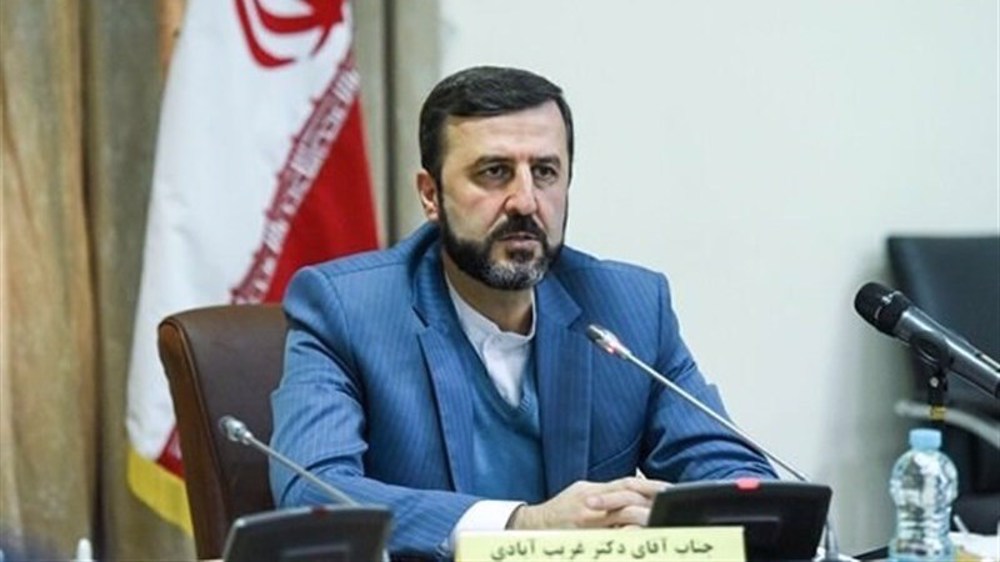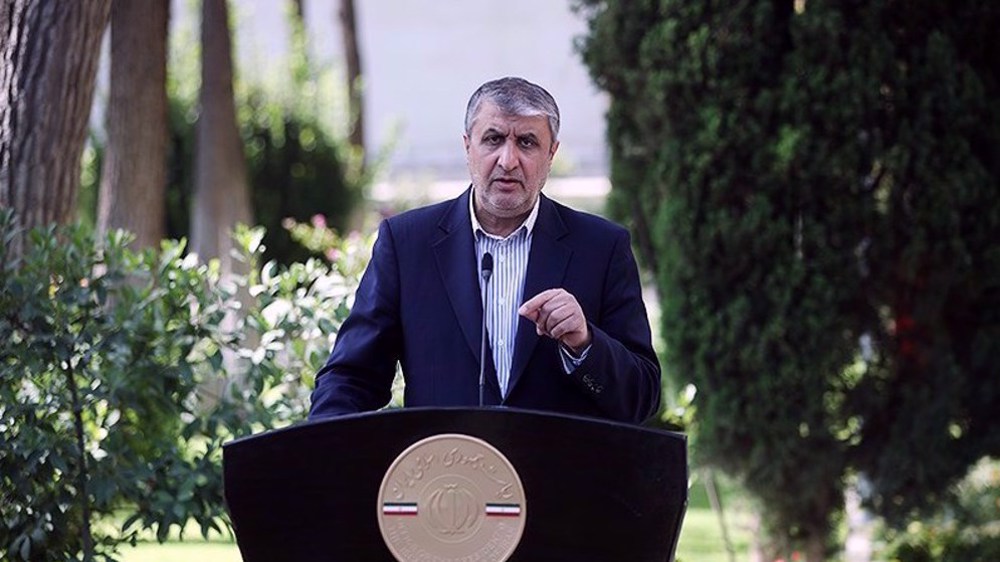Opportunity of nuclear talks may not come again: Zarif
Iranian Foreign Minister Mohammad Javad Zarif has attached special significance to the ongoing talks on Iran’s nuclear program, saying the negotiations serve as an opportunity that may not be repeated.
“The only way to resolve the issue is through negotiations,” Zarif said on Sunday at a press conference on the sidelines of the Munich Security Conference in Germany.
“We have made quite a bit of success” during the negotiations to resolve remaining issues on Iran’s nuclear program “over the past many months,” Zarif said, adding that the talks are an “opportunity” to resolve the standoff between Iran and the West.
“This is the opportunity to do it and we need to seize this opportunity. It may not be repeated,” the Iranian foreign minister stated.
He said the first objective of the negotiations is to assure the opposite side that Iran’s nuclear program "remains exclusively peaceful,” adding, “It means that Iran should be able to exercise its right to nuclear technology for peaceful purposes because without exercising that right it is impossible to make sure that it is peaceful.”
The second objective, Zarif went on to say, is the removal of all “unacceptable” sanctions imposed on Iran.
“We are prepared to reassure the international community and some of the negotiating partners that Iran’s nuclear energy is peaceful, but at the same time it is important the restrictions that have been imposed on Iranian people be lifted,” he stated.
“It is important for everybody to realize that the only way to deal with Iran is through respect and negotiations and meeting on a non-zero sum game.”
The Iranian foreign minister said those who insisted on imposing sanctions on Iran should now realize that the restrictions “did not achieve their intended result.”
“When the sanctions were imposed on Iran, Iran had less than 200 centrifuges. If the objective was to prevent Iran from developing its nuclear technology, they (sanctions) utterly failed because now we have 20,000 centrifuges.”
Commenting on a possible extension to the nuclear talks, Zarif said, “I do not think another extension is in the interest of anyone, as I do not believe this extension was either necessary or useful.”
Zarif also responded to a question on the possible consequences if the nuclear talks fail, saying, “If we don’t have an agreement, it is not the end of the world.”
Iran and the P5+1 group of countries – Russia, China, France, Britain, the United States and Germany – are seeking to reach a high-level political agreement by the end of March and to confirm the full technical details of the accord by July 1.
Elsewhere in his remarks, the Iranian foreign minister slammed the Tel Aviv regime’s claims that Iran is after a nuclear weapon.
“We do not have a weapons program,” he said, adding that the Israelis cannot hide their acts of aggression against Palestinians and others in the region through their hypothetical allegations.
IA/HSN/HMV
Hezbollah rejects internal discord, will not fight Lebanese army: Senior official
VIDEO | Severe weather floods coastal roads in southern France
The Year That Was: Five Iranian women scientists who seized global limelight in 2025
Leader: US-Israeli military aggression in region defeated by Iranian youth
VIDEO | Yemenis will play critical role in restoring Islam to greatness: Yemeni leader
US cannot turn Venezuela into a colony and steal its natural resources: Maduro
Israeli forces kill Palestinian man in Gaza; settler violence intensifies in West Bank
Israeli strike injures UN peacekeeper in southern Lebanon









 This makes it easy to access the Press TV website
This makes it easy to access the Press TV website